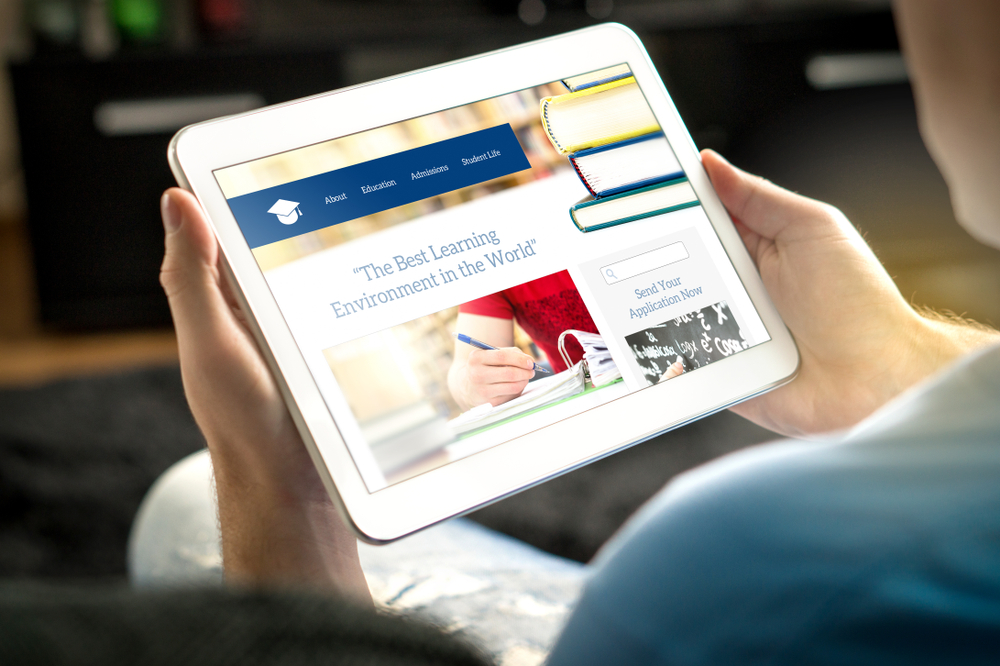Obtaining your college degree is a milestone that needs to be celebrated.
However, going through this journey requires a lot of preparation.
Here are some tips you can follow to make sure you’re ready for the next step in your academic life:
1. Pass High School
Each college has varying requirements regarding your high school grades. Without these, you won’t be accepted into a particular college.
You need to make sure that you have the minimum requirements regarding subjects and grades at your high school level.
If you don’t, it’s never too late. You can explore your options regarding studying and writing the exams for the subjects that you may not have.
Once you have your subjects in order, you can then apply to different colleges.
2. Assess Your Finances
Once you have decided to go to college, you must do your research with your finances at the back of your mind.
Your financial situation will guide you in terms of the direction you will take to research the different types of colleges that you can apply, and attend, if accepted.
For example, you may decide that attending an online college is what is in line with your current financial situation, or applying for colleges that offer a scholarship.
Once you have figured out the financial implications of attending college, you can begin your research.
3. Research
There are a plethora of colleges that you can attend. These may be in the form of online colleges or physical attendance.
You can use different tools online to compare colleges and see the ones that would interest you. These tools rank colleges in order of success and recommendation, as well as provide information such as tuition, degrees, and credits that are provided.
You can also use online tools to find the type of college that will work for you best based on the particular degree that you would like to obtain.
Once you have a shortlist of colleges that interest you, you can then begin to narrow down the ones that you wish to apply to.
4. Apply
For you to attend college, you would have to submit an application to the school you prefer.
You must make sure that you have all the documents that are required to be filled in and that you fill every section in. Also, carefully read the instructions, as the application is also a type of exam to see whether you can follow instructions efficiently.
You may be asked to write long answers to particular questions. Pay attention to these as your answers will reflect the kind of student that you will be and whether they will want to take you on.
Once you have filled in the application, make sure to attach all the requirements such as high school grades, testimonies, a motivational letter, and proof of funds in some cases.
Many applications will be sent to the colleges, any mishap on your end will lead to it to just fall through the cracks. No staff member will follow up after you point out errors or missing documentation.
You can ask a current college student or someone who’s attended before to help you with the application process. A second pair of eyes can pick up on errors that you might’ve missed.
5. Gather All Resources
While you wait for responses from all the colleges that you’ve applied to, you must begin to gather your resources if you haven’t already.
For instance, if you are attending an online college, you must make sure that you have a laptop and a source of wi-fi to be able to attend your classes.
You must also have books to write in and a journal to keep you organized as much will be expected from you to deliver.
Attending college online requires you to be in a conducive space. You must consider where you will be taking your classes.
You can create a corner office space in your home or check out quiet spots in your neighborhood where you can go when it’s time to attend classes.
If you are attending college physically, you need to make a checklist of all the requirements regarding traveling and living away from home, assuming that you will be.
You need durable suitcases, clothes, stationery, bedding; and if you’re off-campus you might as well begin to look at the different neighborhoods that you could potentially live in. Assess the rental costs, and the potential to find a job if this is in your cards.
Finding out such information before you get responses from the college, may help you make your decision when it’s time to accept an invitation.
6. Mentally Prepare
Many students get excited at the thought of attending college away from home without taking into consideration the level of mental preparation that is required to possibly lower the risk of anxiety, depression, and stress.
Mentally preparing for college away from home can mean trying to be as independent as you can as you will be when you are away from home. If you rely on your parents or house help to prepare your meals and tidy your space, you can offer to begin practicing to do these chores on your own.
Depending on the college and living space that you may be in, you might not have as much help as you do at home. You can learn to prepare different meals, learn how to shop on a budget, and discover what independent living may entail if you haven’t already.
You also have to be mentally prepared to be away from your parents, family, and friends for long periods of time.
If you are going to be attending college in a foreign country, you need to begin learning the language. Although your classes may be in English, you will most likely need to communicate with community members in their local language.
The same applies to those who will be attending online classes. You need to mentally prepare to be disciplined regarding your study schedule.
Online learning means that you have to be self-motivated and committed as there will be no teachers or colleagues in your physical space to check up on you if you were absent.
This may mean having to cut down on leisure time and freeing up space for your studies. You can begin to practice this lifestyle before you begin attending college.
7. Go Through The College Guide

Once you have been accepted and you have decided to go with a particular college, you must go through the college guide that is sent to you or is found on the school website.
The college guide has the basic information that you need to know before you start college and will help you prepare.
The guide can provide information such as the equipment and resources you need to purchase for your learning purposes, what to bring and what not to bring, rules and regulations, your faculty and housing situation, financial information, and other affiliations that will be important during your college stay.
Online college guides may contain information such as schedule, learning packages, the choices of learning mediums that you have such as video, text, or live streaming, and the subjects that are available at certain times.
You need to be familiar with such information particularly if you don’t have a colleague or teacher to remind you which a student in a physical setting may have.
8. Collect Outstanding Documentation
In some cases, the documentation required when you apply is not the complete package.
Other documentation required may only be once you have been accepted such as final examination results, medicals, and a student visa if you’re attending university abroad.
Make sure that you prepare for college by collecting all these documents that are required when you arrive.
Failing to do so will only slow down your registration process and make it more complicated.
9. Chat With Former Students
If you have access to previous or current students from that particular college, it’s recommended that you have a casual chat.
These students can give you insight into what to expect at the college, both pros and cons.
Keep in mind that experiences are subjective, meaning the experiences of other students may not be the same as your experiences when you get there.
Chatting with the students will only make you appreciate the possibilities of the space that you will be living in.
10. Pack Light
When the day finally arrives for you to leave home and attend college, it’s advised that you take a light luggage with you.
When you get to college, some mix-ups occur which may have you going from one place to another.
For example, if you had been placed in school accommodation, it may be flagged that you were placed in the room that belongs to another, only after you had unpacked and was beginning to settle!
This means you have to re-pack and go to the room that was designated for you.
Another example is that if you have housing off-campus, you may have to wait a while to receive the keys to your house meaning your belongings will be outside until the caretaker or the owner shows up.
These are just real-life examples of what can happen. Not to say you should expect the worst, but pack light just in case.
11. Attend Orientation
You might not hit the ground running with college classes until orientation has been completed.
Depending on the varsity that you attend, some orientation periods can range from a week to a month.
Orientation is designed to prepare you for college. You may attend introductory lessons to subjects so that you make your sure decisions on whether you signed up for the majors and minors you would enjoy.
You may be introduced to different cultural and sporting activities, different members of the college, and take tours of different spaces of the college.
All this information will come in handy when you begin serious classes. Some students use this opportunity to make friends and party, which is encouraged, depending on the college you enrolled in.
However, if this becomes your focus during the orientation period, you may just find yourself lost when studies begin.
12. Familiarise With Support Systems
No matter how prepared you may be, college can get overwhelming. The academic and social demands mixed with being away from familiar territory can weigh on a person.
This is why colleges have support systems in place to help students with their mental and emotional wellness.
You should familiarise yourself with the guidance counseling spaces, wellness centers, and psychological support offices should you find yourself in a challenging state of being during your learning.
13. Make Your Living Space Comfortable
The space in which you live indirectly affects your mental and emotional space.
Once you have unpacked, make sure that you can find all you need to get comfortable. If this means hanging up a picture of your family, then do it.
Every student has his or her definition of comfortable. That space will be your home for a long period of time, so you have to make it so that you look forward to it.
The same goes for those who are attending their classes online. You will be spending most of your time in that space so you must get rid of table clutter and have a bottle of water by your side throughout the sessions.
Make sure that you have a comfortable chair so that you don’t compromise your posture by slouching.
Conclusion
Preparing for college will help you begin your journey to obtaining your college degree or diploma. You must make sure that you have the grades that are required.
Once you are decided on applying to certain colleges, you must assess your financial situation. This will determine the specific colleges that you may apply to.
You then need to gather the resources you need when you begin college while you mentally prepare. Going through your college guide, collecting outstanding documentation, and chatting with previous students, are all ways to prepare for college.
When leaving for college, keep in mind to pack light. When you arrive, attend orientation, familiarise yourself with support systems, and make your living and learning space comfortable.







